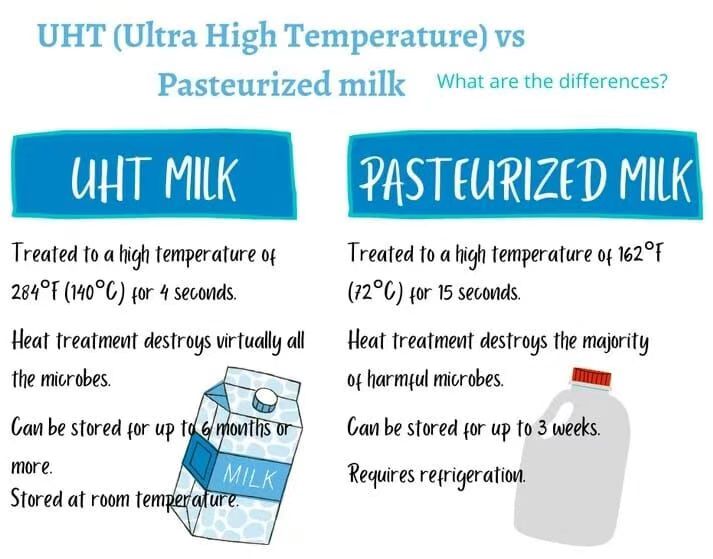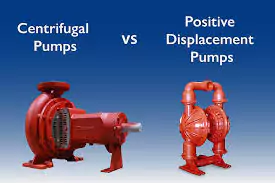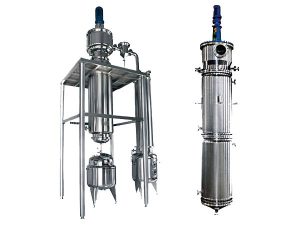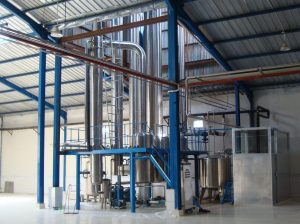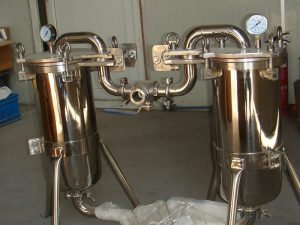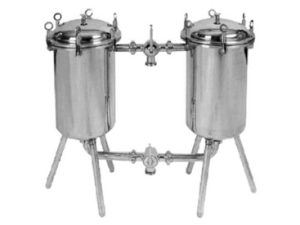In industrial manufacturing, efficiency and precision in liquid processing are critical. Among the most effective technologies for concentration and solvent recovery is the Rising Film Evaporator. Widely used in pharmaceutical, chemical, and food processing industries, this equipment offers unparalleled advantages in handling heat-sensitive liquids, improving productivity, and reducing operational costs.
Whether you are looking to optimize production lines or enhance energy efficiency, understanding the key features and benefits of a Rising Film Evaporator is essential for making informed purchasing decisions.
Table of Contents
ToggleWhat is a Rising Film Evaporator?
A Rising Film Evaporator is a type of thin-film evaporator designed to efficiently concentrate liquids through heat transfer. In this system, the liquid flows along a heated vertical tube, forming a thin film that rises due to vapor generation. The process allows rapid evaporation with minimal residence time, making it ideal for heat-sensitive substances like fruit juices, pharmaceutical extracts, and chemical solutions.
How It Works:
-
Liquid enters the bottom of the vertical heating tubes.
-
Heat from the surrounding jacket or steam causes partial vaporization.
-
The vapor lifts the remaining liquid as a thin film along the tube walls.
-
The concentrated liquid exits from the top while vapor is collected for condensation.
Key Advantages of Rising Film Evaporators
| Feature | Benefit | Why It Matters for Industrial Users |
|---|---|---|
| Short Residence Time | Minimizes thermal degradation | Protects heat-sensitive products such as juices, extracts, or pharmaceuticals |
| High Heat Transfer Efficiency | Rapid evaporation | Reduces energy consumption and operational costs |
| Low Fouling | Easier cleaning and maintenance | Extends equipment life and reduces downtime |
| Compact Design | Saves floor space | Ideal for factories with limited production area |
| Scalable Capacity | Customizable to production needs | Supports small batch or large-scale industrial processing |
By incorporating these features, Rising Film Evaporators provide a combination of reliability, efficiency, and operational flexibility that industrial users highly value.
Industrial Applications
Rising Film Evaporators are indispensable across multiple manufacturing sectors:
-
Pharmaceutical Industry: Concentration of active pharmaceutical ingredients (APIs) without thermal degradation.
-
Food & Beverage Industry: Juice concentration, dairy processing, and flavor extraction.
-
Chemical Industry: Recovery of solvents, crystallization processes, and chemical intermediates.
-
Specialty Liquid Processing: Handling polymers, resins, and other heat-sensitive solutions.
Design and Maintenance Considerations
When selecting a Rising Film Evaporator, consider:
-
Tube Material & Coating: Stainless steel or corrosion-resistant alloys for chemical durability.
-
Steam & Energy Optimization: Multi-effect evaporators can further reduce energy consumption.
-
Ease of Cleaning: CIP (Clean-In-Place) systems are recommended for minimal downtime.
-
Automation & Controls: Advanced sensors for temperature, pressure, and flow ensure consistent product quality.
Proper maintenance ensures long-term efficiency and reliable operation. Recommended practices include routine inspection of heat transfer surfaces, monitoring vapor output, and periodic cleaning to prevent fouling.
Conclusion
A Rising Film Evaporator is more than just an industrial evaporator—it is a strategic investment for manufacturers aiming to improve efficiency, preserve product quality, and reduce operational costs. Its versatility across industries, combined with high heat transfer efficiency and minimal product degradation, makes it a must-have for modern liquid processing facilities.
If your facility requires reliable, high-performance evaporation equipment, exploring our range of Rising Film Evaporators can help you achieve higher productivity, consistent product quality, and measurable cost savings. Contact us get custom solutions.
FAQs:
1. What types of liquids are suitable for a Rising Film Evaporator?
Heat-sensitive liquids such as fruit juices, pharmaceuticals, chemical solutions, and specialty extracts are ideal.
2. Can the system handle large-scale production?
Yes, capacities can be customized from small pilot-scale batches to industrial-scale processing.
3. How does energy consumption compare to other evaporators?
Rising Film Evaporators offer higher heat transfer efficiency, reducing steam usage and overall energy costs.
4. Is maintenance complicated?
With proper design and CIP capabilities, maintenance is straightforward, minimizing downtime and operational disruptions.
5. Can it be integrated into existing production lines?
Absolutely. Its modular design allows seamless integration with upstream and downstream equipment for efficient industrial workflows.

